New Delhi – Chief Minister Rekha Gupta announced on Wednesday that the national capital will receive unprecedented infrastructure development through Delhi road projects worth ₹24,000 crore, marking a significant milestone in the city’s urban planning and traffic management strategy. These comprehensive Delhi road projects represent the latest phase of a larger infrastructure initiative that has already seen the central government invest ₹1.25 lakh crore in various connectivity improvements across the capital region.
The announcement of these ambitious Delhi road projects came following a high-level meeting chaired by Union Minister of Road Transport and Highways Nitin Gadkari. The meeting, which included Lieutenant Governor V K Saxena, Union Minister of State Harsh Malhotra, Delhi cabinet ministers, Members of Parliament Ramvir Singh Bidhuri and Manoj Tiwari, and senior government officials, demonstrates the collaborative approach being taken to implement these transformative Delhi road projects.
Revolutionary Underground and Elevated Infrastructure
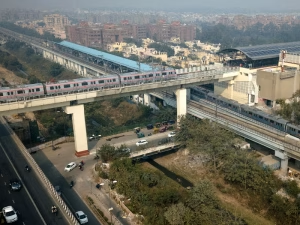
Among the most significant Delhi road projects announced is the construction of an approximately 7-kilometer-long underground tunnel connecting Shiv Murti to Nelson Mandela Road. This innovative infrastructure project will provide a seamless underground transportation corridor, significantly reducing surface traffic congestion and travel time across this crucial stretch of the capital.
The Delhi road projects also include an ambitious elevated corridor from Sarai Kale Khan to Indira Gandhi International Airport, which will later extend connections to Faridabad and Gurugram. This elevated infrastructure represents a paradigm shift in how the capital approaches traffic management, allowing multiple levels of transportation to operate simultaneously. Additionally, a feasibility study is currently underway for another tunnel connecting Sarai Kale Khan to IGI Airport, further demonstrating the comprehensive nature of these Delhi road projects.
Also Read: Bangalore Stampede Devastates RCB Victory Celebrations: 11 Dead, 47 Injured
Strategic Expressway Development
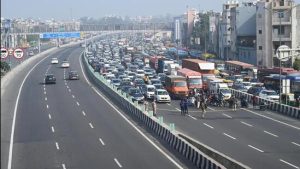

The Delhi road projects encompass the development of the Delhi-Katra-Amritsar Expressway, which will be strategically linked to the Urban Extension Road (UER)-II. This major highway connection will provide enhanced connectivity between the national capital and important destinations in Punjab, facilitating both commercial and passenger traffic movement.
Another crucial component of the Delhi road projects includes a 20-kilometer-long new road connecting Inderlok metro station to Sonepat via Munak canal. This infrastructure development will significantly improve connectivity between Delhi and Haryana, addressing long-standing traffic bottlenecks in this corridor.
The Delhi road projects also feature a second extension of UER-II, designed to connect Alipur to Tronica City and the Delhi-Dehradun route. These strategic connections will enable seamless travel between Haryana, Dehradun, and Noida without requiring vehicles to enter Delhi’s congested core areas, according to government officials.
Comprehensive Project Implementation Strategy

Chief Minister Gupta emphasized that detailed project reports for all Delhi road projects have been prepared and work is expected to begin soon. The systematic approach to these Delhi road projects reflects careful planning and coordination between various government agencies and stakeholders.
The Delhi road projects are part of a broader infrastructure development strategy that includes ₹35,000 crore worth of projects currently being implemented by the National Highways Authority of India (NHAI), while projects worth ₹64,000 crore have already been completed. This phased approach ensures continuous improvement of Delhi’s transportation infrastructure.
Completed and Ongoing Infrastructure Achievements
The success of previous Delhi road projects provides a strong foundation for the upcoming initiatives. Major completed projects include the 135-kilometer Eastern Peripheral Expressway worth ₹12,000 crore, the Dhaula Kuan-Gurugram corridor worth ₹373 crore, and the Gurugram-Sohna Road project valued at ₹2,009 crore.
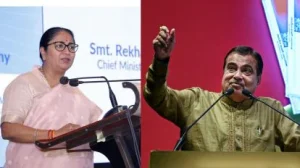

Additional completed Delhi road projects include the Delhi-Panipat corridor worth ₹2,205 crore and the 32-kilometer Delhi-Dehradun Expressway stretch from Akshardham to EPE junction, valued at ₹3,500 crore. These projects demonstrate the government’s commitment to comprehensive infrastructure development.
Several flagship Delhi road projects are nearing completion, including the Delhi-Meerut Expressway with 92% work completed, Dwarka Expressway at 98% completion, UER-II at 95% completion, and the DND Interchange-Kalindi Kunj-Faridabad-Sohna-Jewar Airport Link Road at 93% completion.
Strategic Road Network Enhancement
The Delhi road projects extend beyond new construction to include the strategic transfer of major roads to NHAI management. Roads such as Rohtak Road, Punjabi Bagh to Nangloi, Ashram to Badarpur, and MG Road have been handed over to NHAI for comprehensive development including decongestion works, proper drainage systems, side lanes, and necessary infrastructure improvements.
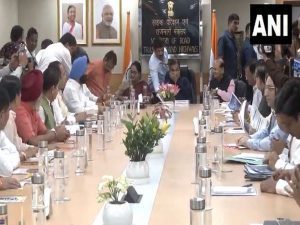

This consolidated approach to Delhi road projects addresses previous challenges where multiple agencies handled different aspects of road development, leading to issues such as waterlogging and unconnected drainage systems. Under the new system, NHAI will resolve these problems at its own expense with support from the Delhi Public Works Department.
Railway Crossing Solutions and Bottleneck Elimination
Recognizing the critical role of railway crossings in traffic congestion, the Delhi road projects include a dedicated allocation of ₹150 crore for construction of Road Under Bridges (RUBs) and Road Over Bridges (ROBs). These infrastructure improvements will eliminate bottlenecks caused by railway crossings, ensuring smoother traffic flow across the capital.
The integration of railway crossing solutions within the broader Delhi road projects framework demonstrates the comprehensive approach being taken to address all aspects of traffic management and urban mobility.
Environmental Sustainability and Waste Management
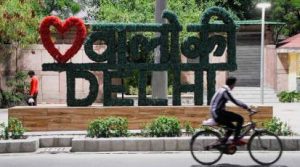

The Delhi road projects incorporate innovative environmental sustainability measures, with all future road projects designed to maximize the use of inert construction material. This initiative serves dual purposes: reducing the burden on landfill sites while repurposing waste into valuable construction resources.
This environmentally conscious approach to Delhi road projects aligns with broader urban sustainability goals and demonstrates how infrastructure development can contribute to environmental protection while meeting transportation needs.
Political Leadership and Acknowledgment
Chief Minister Gupta expressed gratitude to Prime Minister Narendra Modi and Union Minister Nitin Gadkari for their support in implementing these transformative Delhi road projects. “I want to thank PM Narendra Modi and Nitin Gadkari for helping decongest Delhi and make it a pollution-free city,” she stated, emphasizing the collaborative nature of these infrastructure initiatives.
The CM highlighted that these Delhi road projects “will be crucial in easing the traffic between Delhi and Haryana,” underscoring the regional impact of the infrastructure development beyond Delhi’s boundaries.
Future Impact and Urban Transformation
The comprehensive scope of Delhi road projects totaling ₹1.25 lakh crore represents one of the largest urban infrastructure investments in Indian history. These projects will fundamentally transform Delhi’s transportation landscape, providing residents and commuters with efficient, modern infrastructure that addresses current congestion challenges while accommodating future growth.
The Delhi road projects demonstrate the government’s commitment to creating a world-class transportation network that supports economic development, reduces pollution, and improves quality of life for millions of Delhi residents and daily commuters.

